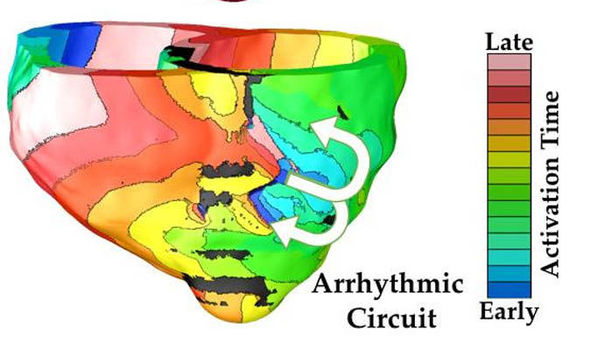Personalised 3D computer models of patients’ hearts to help cardiologists carry out life saving treatments were welcomed by british experts.
Professor Peter Weissberg, medical director at the British Heart Foundation, said: “Implantable cardioverter defibrillators, commonly known as ICDs, are life saving in patients who are prone to a cardiac arrest following a heart attack.
“However, they are expensive and can lead to both physical and emotional complications, so it is important to use them only in those patients who need them most.
“This preliminary study describes a way of using information derived from a non invasive MRI scan of a patient’s heart to predict their likelihood of suffering a cardiac arrest after a heart attack.
“The results are promising, but the study is too small to be sure the approach can reliably identify patients at risk.
“If these findings are confirmed in a larger study they are likely to lead to this approach being used to help identify those patients who are likely to benefit from receiving an ICD in the future.
“We recognise the need to minimise the negative effects of ICDs on people’s emotional and physical wellbeing, and the BHF is funding research to find new ways of detecting and treating potentially dangerous heart rhythms.”
The virtual organs developed by Professor Natalia Trayanova, of Johns Hopkins University, Baltimore, and described in Nature Communications can work out a heart attack victims’ risk of developing a potentially fatal irregular beat.




